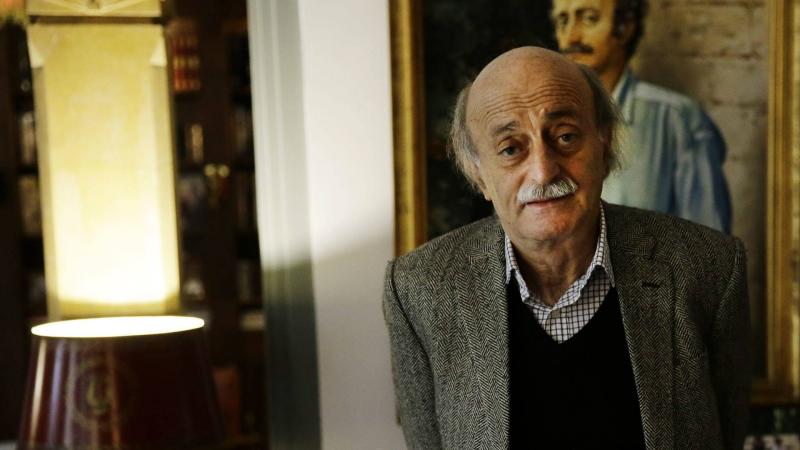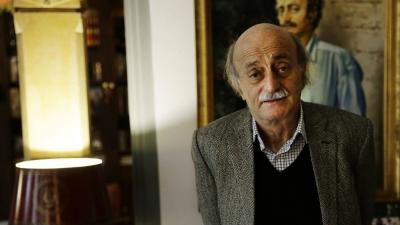The electronic newspaper "Al-Anba" reported that the process of addressing the relationship between Lebanon and Gulf countries is moving along two parallel tracks: the first is official through government authorities, and the second is behind the scenes through communication channels led by Walid Jumblatt, head of the Progressive Socialist Party, in cooperation with the French. In this context, the visit of Democratic Gathering bloc member Wael Abu Faour to Riyadh took place. According to information revealed by "Al-Anba," it is anticipated that the ambassadors of Saudi Arabia and Kuwait will soon return to Lebanon, representing a positive gesture that could create a new opportunity for Lebanon to reintegrate into the Arab community following the restoration of diplomatic and trade relations with the Gulf, provided that things proceed smoothly.
In this context, the attempts made by Prime Minister Najib Mikati to send messages to Arab countries, particularly the Gulf, to provide the reassurances that these countries seek from Lebanon are relevant. The positions expressed by Mikati and the Minister of Interior and Municipalities, Bassam Mawlawi, are clear evidence of these efforts. However, what has been mentioned will not be sufficient to restore relations between Lebanon and the Gulf; the repair of the rift that emerged after the diplomatic crisis with Gulf countries requires effective measures on the ground and serious governmental action to halt lawlessness and adhere to the state’s foreign policies.
Meanwhile, positive signals have emerged from the Saudi Foreign Ministry, which considered Mikati’s recent positions as containing positive points, a sentiment echoed by Kuwait in a similar stance. Domestically, the election file is a primary concern for the government, taking precedence over the living and social issues that continue to escalate. In this context, prices for various products, especially fuel, are rising steadily due to periodic increases driven by rising global oil prices reaching record levels.
Additionally, Lebanon continues to hold discussions with the International Monetary Fund (IMF), but there have been no tangible results so far, linked to two key points: first, Lebanon has not produced a clear and explicit economic financial plan that explains how to calculate and distribute losses without burdening depositors with the largest share. The second point relates to the political decision, both internally and externally, to reach an agreement between Lebanon and the Fund.
Failure to agree with the IMF on a plan and secure funding for the state's finances, leading to an inability to stabilize the dollar exchange rate, means Lebanon continues to be trapped in the same cycle without making any progress in the path of reform recovery, affecting many sectors, notably the energy and electricity sector specifically. In the energy file, agreements for the import of gas from Egypt and electricity from Jordan have not been fully realized, even though previous promises suggested completing the plans and beginning import operations by early February. The Minister of Energy and Water, Walid Fayad, tied the increase in supply hours to gas imports, but no progress is in sight in this regard.
Sources following the issue indicated that "the increase in supply hours depends on importing gas and electricity from Egypt and Jordan; the technical matters have been resolved, but two main obstacles stand in the way of starting the import operations: funding and exemption from the Caesar sanctions law." In this context, the sources mentioned in a conversation with "Al-Anba" that "no funding agreement has been concluded yet, which is due to Lebanon's delay in preparing reform plans and reaching an agreement with the IMF. It is known that the two agreements are likely to be a package deal. Moreover, there has been no formal exemption from the United States from the Caesar law, and the reason is political. The exemption will join the package agreement with the IMF and World Bank, dependent on the availability of political decisions internally and externally."
The sources concluded by noting that "there is no way to increase supply hours except through importing energy and its sources from abroad. In the absence of funding, the Electricite du Liban company will not be able to provide additional supply hours, and the situation is expected to remain the same until after reaching agreements with international financing institutions, which is indirectly related to the parliamentary elections and changes in authority in Lebanon." Member of the Parliamentary Committee on Works and Energy, Hussein Al-Jishi, pointed out that "the concerned energy ministers from the three countries, Egypt, Jordan, and Lebanon, met and agreed on technical matters, but the political signals from the United States have not been available yet to initiate the import process." In an interview with "Al-Anba," Al-Jishi emphasized that "there is no agreement with the World Bank yet, and there is no solution to produce more energy unless the necessary dollars are provided, which the Central Bank of Lebanon denies its ability to achieve."




